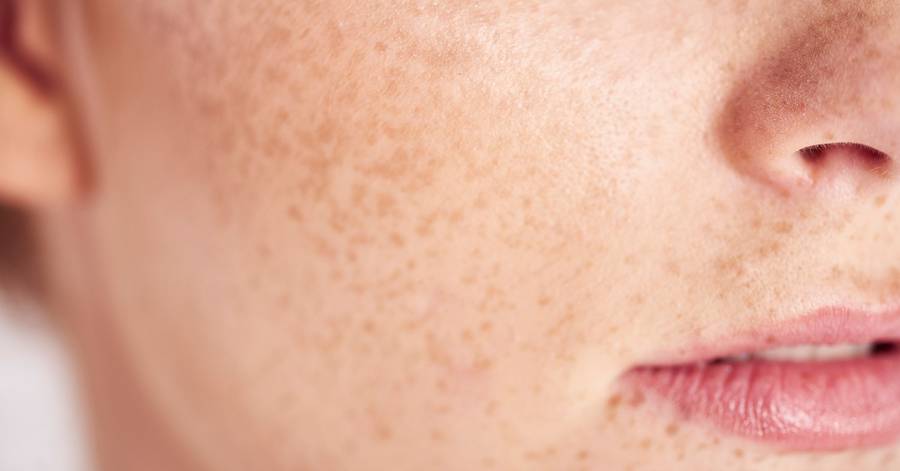A growing body of research suggests that skin may play a bigger role in fueling chronic disease and age-related illness than previously understood
A recent study in animals found that skin, when attacked, produces enough of an inflammatory substance called cytokines to affect not only the skin but the rest of the body, as well. And body-wide inflammation, when it persists, is thought to contribute to and accelerate chronic conditions such as heart disease and lupus.
At the same time, a new small study in humans suggests that using a barrier-forming cream, such as those with an ingredient called ceramide, to treat and prevent problems associated with aging skin—such as dryness, itching and cracking—may help reduce the low-grade inflammation that occurs in otherwise healthy people as they age. Researchers from the University of California, San Francisco and the San Francisco Veterans Hospital say reducing age-related inflammation could help slow the progression of age-related disorders associated with chronic inflammation, such as Type 2 diabetes, heart disease and loss of muscle mass.
Systemic disease usually stems from multiple sources, so skin protection alone is unlikely to be a panacea, experts say. But the hope is that it can help slow the onset or progression of chronic conditions that often crop up in patients with skin disorders such as psoriasis. And the UCSF study, which was published in the Journal of the European Academy of Dermatology and Venereology in March, provides the first hint in humans that protecting the skin with a barrier cream might benefit otherwise healthy adults whose skin invariably starts to lose its barrier function around middle age.
“I don’t think this is going to be a magic bullet for people already suffering from chronic diseases, but if people could decrease their systemic skin inflammation by 10% with a skin cream,” it likely would reduce some diseases of aging in the population as a whole, says Theodora Mauro, a dermatology professor at the UCSF and one of the paper’s authors.
A barrier
Skin, the body’s largest organ, serves as a barrier to keep water in and infection and other disease-causing bugs out of our bodies. When the skin barrier is impaired, a type of skin cell called a keratinocyte produces cytokines to self-repair. Keratinocytes and other specialized skin-immune cells also summon the immune system for help. However, sometimes high keratinocyte cytokine production for extended periods and activation of the immune system further damage the skin, leading to a cycle of continuous inflammation and skin damage. It also can lead to chronic inflammation that weakens the body.
In a paper published last year in Nature Communications,
Cord Brakebusch
and colleagues at the University of Copenhagen studied laboratory mice and found that their skin cells alone were capable of producing enough of a certain type of cytokine to cause inflammation in other areas of the body. Previously it was thought that the inflammatory response would affect only that local patch of skin.
Dr. Brakebusch cautions there is need for continued research in this area, but the findings suggest that keeping skin healthy could have far more than cosmetic implications. “If it is true that stress on keratinocytes could be important for triggering local disease or systemic disease, then preventing stress reactions of the keratinocytes, such as with drugs that improve the barrier function of the skin or interfering with the stress-signaling in keratinocytes, should have protective effects,” says Dr. Brakebusch.
The UCSF researchers, meanwhile, found in their pilot study of 33 older, healthy adults that applying a skin-barrier cream twice daily for 30 days reduced age-related cytokine production in the blood. That suggests that protecting the skin could be good for diseases of aging that involve chronic elevated inflammatory cytokines.
“What this suggests if you’re looking at inflammation in old people is that you can help the systemic inflammation if you treat their skin with the appropriate agent,” says Dr. Mauro, who reported no financial conflicts with the study.
The results mimic similar findings the researchers found in mice.
However, there appeared to be a rebound effect once the mice stopped using cream, says Dr. Mauro, which suggests that continual use is important. And some types of cream they tested, such as long-term cortisone creams, worsened barrier function, which suggests that these creams be used only when necessary and not continuously, she says.
‘Powerful connection’
Progress on understanding skin’s connection to the rest of the body has been slow, partly because human skin is complex, made up of different layers and types of cells, researchers say.
A connection between psoriasis and heart disease, for example, was first observed by scientists some 40 years ago.
Starting in the early 2000s, Joel Gelfand and colleagues at the University of Pennsylvania conducted a series of studies looking at medical records from large groups of U.K. patients showing that a diagnosis of psoriasis was linked to higher risk of heart attack, and that those with more severe psoriasis were more likely to have one. In fact, psoriasis patients died on average five years earlier than those who didn’t have the condition, other basic health and age factors being equal, the researchers found.
In 2009, the researchers studied 10,000 patients and had their doctors rate the percentage of skin that was affected by psoriasis . They then followed the patients for four years. Patients with psoriasis affecting more than 10% of the body surface had an 80% higher risk of death from any cause, as well as an increased risk of stroke.
Next, the group found a direct connection between body surface area covered by psoriasis and the risk of developing Type 2 diabetes.
“It tells you there’s a pretty powerful connection going on between when much of skin is inflamed, and the likelihood of developing other serious health problems that share similar immune-based pathways,” says Dr. Gelfand, a dermatology professor in Penn’s Perelman School of Medicine and director of the Psoriasis and Phototherapy Treatment Center.
Whether the successful treatment of psoriasis leads to better health overall remains to be seen. The answer could become clearer in coming years because of the recent introduction of effective new psoriasis drugs, says
Jens Baron,
a dermatologist at the University Hospital at RWTH Aachen University in Germany.
Ms. Wang is a writer in London. She can be reached at [email protected].
Copyright ©2019 Dow Jones & Company, Inc. All Rights Reserved. 87990cbe856818d5eddac44c7b1cdeb8


















